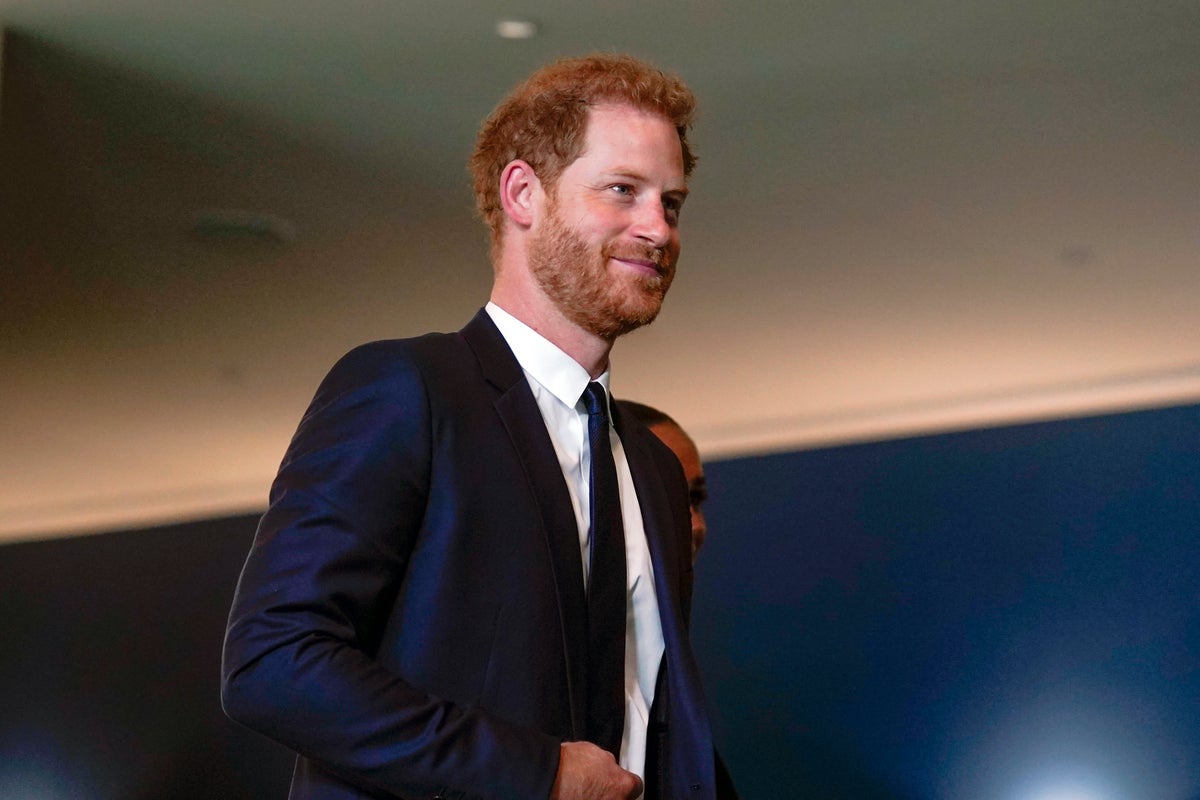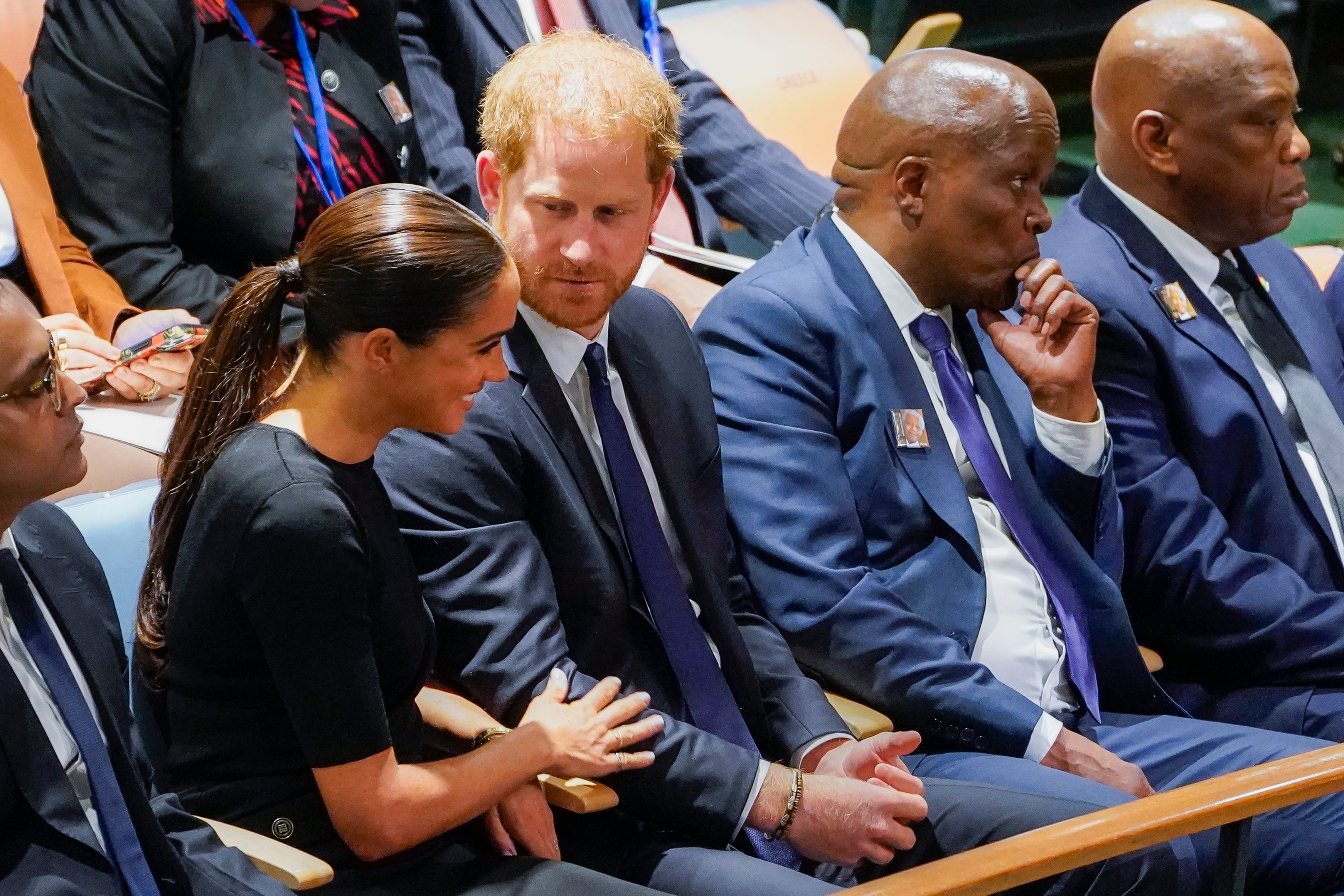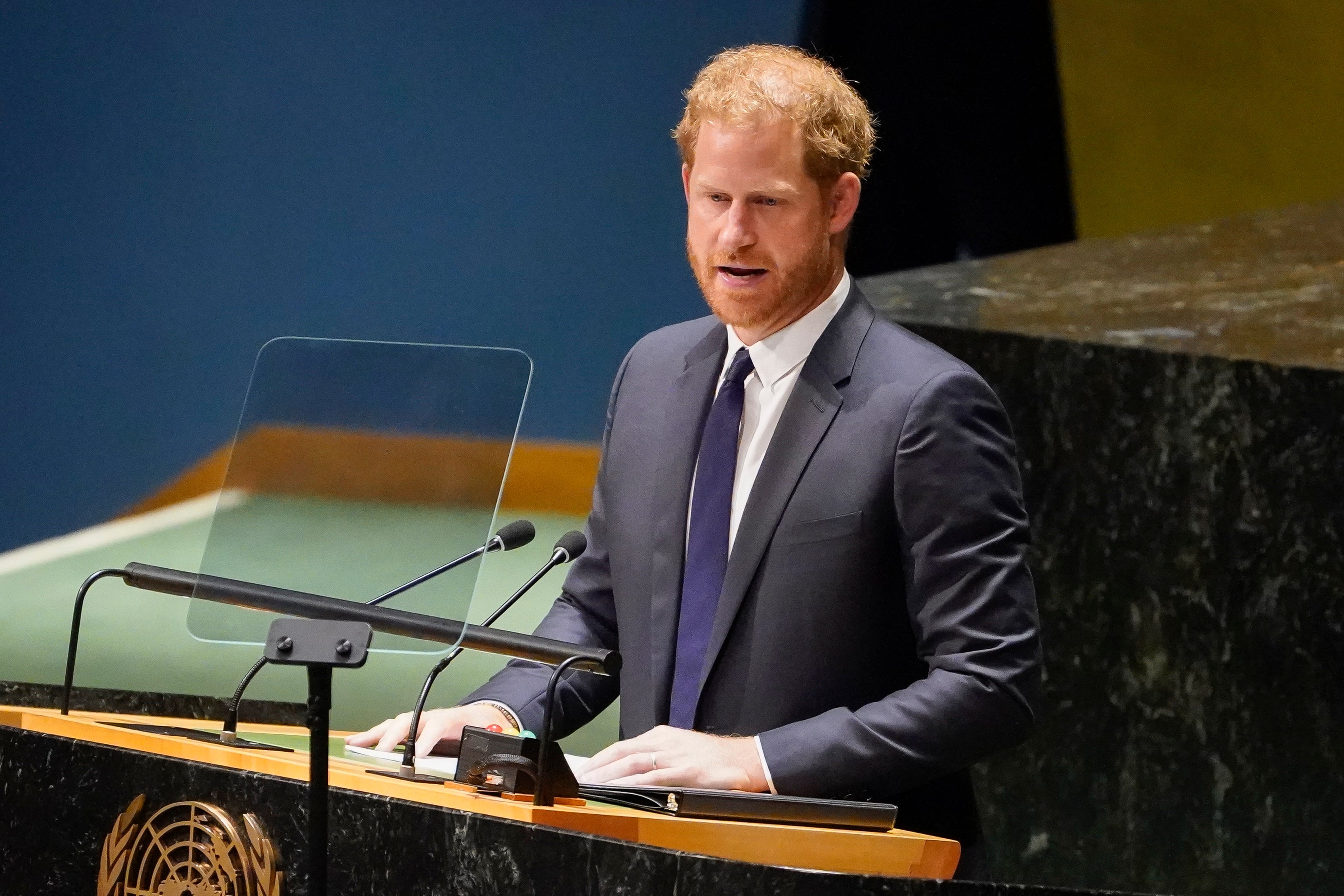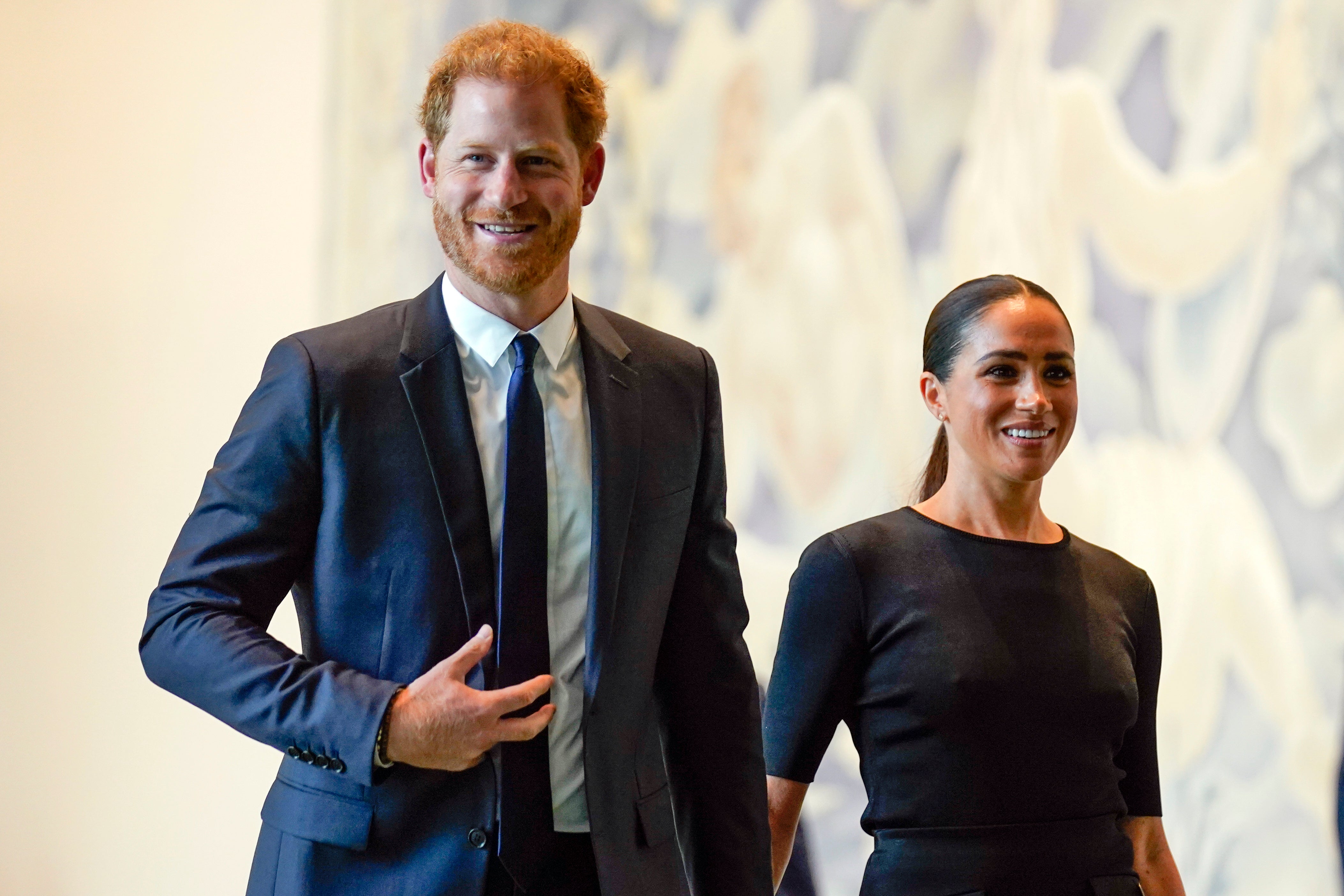
The Duke of Sussex has warned of a “global assault on democracy and freedom” as he spoke about the legacy of Nelson Mandela.
Harry, speaking at the UN General Assembly in New York on Monday to mark Nelson Mandela International Day, told of the dangers of climate change, the coronavirus pandemic, “weaponising lies and disinformation”, the war in Ukraine and abortion laws in the US.The duke, who was joined by his wife, the Duchess of Sussex, also spoke about his mother Diana, the Princess of Wales’ meeting with the former South African leader in March 1997, and how he “sought solace” in Africa following her death.

He said: “This has been a painful year in a painful decade. We’re living through a pandemic that continues to ravage communities in every corner of the globe; climate change wreaking havoc on our planet, with the most vulnerable suffering most of all; the few, weaponising lies and disinformation at the expense of the many; and from the horrific war in Ukraine to the rolling back of constitutional rights here in the United States.
“We are witnessing a global assault on democracy and freedom — the cause of Mandela’s life.”
Speaking about issues in Africa, the duke urged politicians across the world to “lead” despite “resistance from powerful interests”.

Harry and Meghan arrived at the UN event smiling and holding hands, giving no response to a US reporter’s question about biographer Tom Bower’s latest book Revenge: Meghan, Harry And The War Between The Windsors.
Speaking about Diana, Harry said: “On my wall, and in my heart every day, is an image of my mother and Mandela meeting in Cape Town in 1997.
“The photo was presented to me by the late Archbishop Desmond Tutu, whose friendship and inspiration were their own treasured gift. My wife and I had the honour of introducing our four-month-old son to him back in 2019.
“When I first looked at the photo, straight away what jumped out was the joy on my mother’s face; the playfulness, cheekiness, even… pure delight to be in communion with another soul so committed to serving humanity.
“Then I looked at Mandela. Here was a man with the weight of the world on his shoulders, asked to heal his country from the wreckage of its past and transform it for the future.
“A man who had endured the very worst of humanity – vicious racism and state-sponsored brutality. A man who had lost 27 years with his children and family that he would never get back.”

Harry said he has “always found hope” in Africa, a continent where he “found peace and healing”.
He added: “It’s where I’ve felt closest to my mother and sought solace after she died, and where I knew I had found a soulmate in my wife.”







